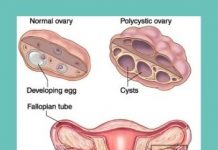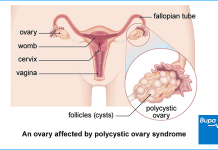You can Find Out More about your baby’s health as your pregnancy progresses. The end of a pregnancy often signals the birth of a healthy baby. Sadly, sometimes a baby is stillborn or dies soon after birth.According to the figures released by the National Vital Statistics Report has stated that the incidence of neonatal deaths (deaths within 28 days of birth) was consistently around 4.5 to 4.7 per 1000 births in the United States from 1999 to 2012.You can also refer health care regulations practicing in Colorado to know more about importance of healthcare.
The emotional and physical strain can be very hard on the mother who suffers such a tragic loss. In the past, parents of a stillborn baby were discouraged from even looking at the baby to spare them the pain. Now, psychologists and healthcare providers are advocating completely different strategies to cope with the pain. With good partnership with the healthcare logistics companies, it is easy to establish a healthcare centers anywhere within the country.
Acknowledge the Loss of Baby
Dr. Michael R. Barman, clinical professor of Obstetrics and Gynecology at the Yale School of Medicine says it is crucial that everyone in the family acknowledges the loss of the baby. In his article entitled “Neonatal Loss: Grieving and Recovery” that appeared in the July 1999 issue of He@lthlink journal, Barman writes that a woman who has a stillbirth today will probably spend some private moments with the baby before offering a service in a good place as Sorensen Funeral Home.
“It is likely she and her family will have an opportunity to see and hold the child. They may be encouraged to have a memorial service or funeral for the child,” he elaborates. He adds that many hospitals now have clergy and bereavement nurses trained to provide help and support for families that have suffered a loss, allowing them to grieve and come to terms with the loss.
Remembering Baby
Meagan Francis, author of Everything Health Guide to Postpartum Care (Avon, Massachusetts: Adams Media, 2015) is supportive of that approach. She writes that parents given the chance to hold the stillborn baby and spend some quiet moments alone with it will be able to treasure that memory later. She also suggests taking back the baby’s placenta and burying it in the parents’ yard or a special place. This will give the parents a private place to remember the child.
In addition, Francis believes that taking photos of parents holding the baby will help too. “When you’re feeling up to it, you can create a scrapbook of memories from the pregnancy, birth and any time you might have had with the baby while she was alive or after she died,” she suggests.
Getting Help and Support
The need to grieve is crucial. And it’s normal for affected mothers to feel a range of negative feelings – sadness, guilt and rage. Depression also often occurs in these women. Symptoms include sleeping difficulty, withdrawal from loved ones, eating disorders and suicidal thoughts. On this, Barman stresses the importance of giving time for the mother and her family to express their fear and share their grief.
Some women will take longer than others to get on with their lives and as such may need counseling or participate in bereavement support groups such as the Hygeia Foundation set up by Barman. Other organizations that support women who have gone through the tragedies of pregnancy loss and stillbirth include Share Pregnancy and Infant Loss Support Inc and Honored Babies.
Stopping Milk Flow
Like other postpartum women, women who gave birth to stillborn babies will start producing milk soon after. This can be a cruel reminder of her loss. To stop milk production, Francis suggesting wearing a snug-fitting bra or binding the breasts with elastic bandages. “You can place cabbage leaves with the veins lightly crushed inside the bra to help relieve engorgement. Replace the leaves when they wilt or become wet,” she says. Ice packs will be handy in reducing the pain and swelling as well.
Losing a much awaited baby is heart-wrenching. But life does go on. Affected mothers can cope by acknowledging the loss, holding a memorial for the child, getting counseling and help from bereavement support groups as well as stopping milk production soon after birth.











